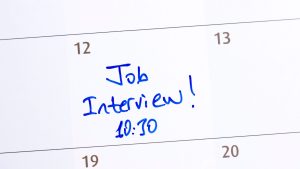Blogs
The Ultimate CV Guide: Dos and Don’ts

Did you know that recruiters spend an average of 6-8 seconds looking at your CV before they decide whether you are suitable for their vacancy or not? Yes, only 6-8 seconds, which means a well-written CV is essential to catching a recruiter's attention and landing your dream job.
Your CV is your first impression, and it needs to grab attention. Don't miss the opportunity to showcase your skills and experience effectively. To help you craft a winning CV, we've compiled a comprehensive resource outlining the dos and don'ts of formatting and content.
Formatting Dos and Don'ts
Do:
- Keep it clean and easy to read by using a simple, professional font like Arial, Times New Roman, or Calibri; sized between 10 and 12 points.
- Utilise consistent formatting throughout your CV, including margins, bullet points, and headings.
- Limit your CV to one or two pages, depending on your experience level.
- Save your CV as a PDF to ensure consistent formatting across different devices and software programs.
- Include your name and contact information at the top of the first page, ensuring it's easy to locate.
Don't:
- Use images, graphics, or an excessive number of colours, as they can make your CV look unprofessional and distract from the content.
- Use large blocks of text; instead, break information down into concise bullet points.
- Use acronyms or jargon without providing context or a brief explanation.
- Use decorative or unconventional fonts, as they can be difficult to read and look unprofessional.
Content Dos and Don'ts
Do:
- Tailor your CV to each job application by highlighting relevant skills and experience.
- Begin with a concise, compelling personal statement or summary that highlights your key qualifications and career objectives.
- List your work experience in reverse chronological order, including job title, company, dates, and brief descriptions of your responsibilities and accomplishments.
- Focus on quantifiable achievements and use action verbs to demonstrate your contributions.
- Include relevant education, certifications, and professional development courses, as well as any relevant skills, such as languages, technical abilities or software proficiency.
Don't:
- Include personal information such as your age, marital status, or religion, as this is not relevant to your ability to perform the job.
- List every single job you've ever had; instead, focus on the most relevant positions within the last 10-15 years.
- Include unrelated hobbies or interests, unless they are directly relevant to the position or showcase transferable skills.
- Use clichés or generic phrases, such as "team player" or "hard worker," without providing concrete examples to support your claims.
- Include references on your CV; instead, prepare a separate reference list to provide upon request.
Proofreading Dos and Don'ts
Do:
- Thoroughly proofread your CV for spelling, grammar, and punctuation errors.
- Ask a trusted friend, family member, or mentor to review your CV for additional feedback.
- Double-check your contact information, dates, and other details for accuracy.
Don't:
- Rely solely on spellcheck, as it can miss context-specific errors or homophones (e.g. "their" vs. "there").
- Submit your CV without a thorough review, as even minor errors can leave a negative impression on recruiters.
A well-formatted and targeted CV is crucial to making a positive impression on recruiters in a short stretch of time and securing job interviews. By following these dos and don'ts, you'll be well on your way to creating a standout CV — and getting your foot in the door for the role of your dreams!
Related Posts
The Right Questions to Ask in a Job Interview
Congratulations, you’ve landed the interview! But remember, it’s not just about your CV. You also get to ask questions! Look and feel prepared with these key questions.
How to Retain New Team Members & Prevent Quitting
You may be wondering why you would need to prevent your new starter from quitting – but did you know that 22% of staff turnover takes place within the first 45 days of employment? This statistic proves just how important those first few weeks and a proper onboarding strategy are to employee retention. So, how…
Hiring 101: How to attract the right team members to your small accountancy firm
Attracting and hiring new team members can seem difficult for a smaller accounting practice – especially when you’re competing with bigger accountancy firms. If that’s the case for your business, this article will show you how being a smaller accounting firm can actually work to your advantage in recruiting the right candidates and team members….
How to actually make time to work on your career
When working in a high-pressure job like accounting, it’s easy to become overwhelmed by your work schedule. Most of your time and energy is spent on daily responsibilities and resolving any last-minute emergencies – leaving little room for anything else. (Like career development.) However, left unchecked, this tunnel vision approach can quickly leave you in…
5 tips to grow your accountancy firm with your sanity intact
Growing your small accountancy practice is not an easy feat. It’s a rollercoaster of emotion with intense highs and deep lows – and it takes a lot of willpower and determination to carry on. And this only gets more intense as you grow, too! Sometimes your pipeline may be sparse, your cash flow may be…
- « Previous
- 1
- 2
- 3





